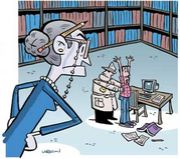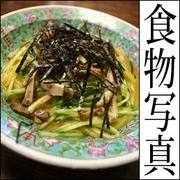March 14, 2003
BOOKS OF THE TIMES; Surviving Amid the Horrors of Idealistic Killing Fields
By MICHIKO KAKUTANI
THE GATE
By François Bizot
Translated by Euan Cameron. With a foreword by John le Carré. 276 pages. Alfred A. Knopf. $24.
The only Westerner known to survive a Khmer Rouge prison, François Bizot -- a French ethnologist specializing in Southeast Asian Buddhism -- was a witness, back in 1971, to the looming terror that would leave an estimated two million people dead in Cambodia by the end of the decade.
During his three-month captivity in a Khmer Rouge camp, where he was accused of being a C.I.A. spy, Mr. Bizot developed a close, bantering relationship with one of Pol Pot's lieutenants: a man named Douch, who would procure his release and who would later become the director of the notorious Tuol Sleng prison, where thousands of people were tortured and killed. The two men's relationship, which forms the narrative spine of Mr. Bizot's harrowing new book, was one worthy of a novel by Graham Greene or John le Carré -- a relationship made up in equal parts of guilt and fear and intellectual gamesmanship; affection, manipulation and cross-cultural Socratic fascination.
How did Douch, an individual Mr. Bizot knew in the early 1970's as ''one of those pure, fervent idealists who yearned above all for truth,'' become one of history's monsters? How did this man, who worked so hard to obtain Mr. Bizot's release because he believed him innocent of the charges against him, become a savage, indiscriminate killer, ''the one responsible for so much infamy''? Those questions lie at the heart of ''The Gate,'' and they underscore the larger questions of how Cambodia became a killing field, the site of one of the worst genocides in modern history.
In ''The Gate,'' already an award-winning best seller in France, Mr. Bizot recounts with unsparing detail and emotion the story of his arrest and imprisonment and his later efforts to help evacuate foreigners, trapped in the French Embassy in Phnom Penh. Though the narrative is filled with odd elisions and gaps (the author is curiously vague about his activities from 1971 to 1975, and even vaguer about the fate of the mother of his daughter, Hélène), though it would have benefited enormously from additional background material that might have situated events in a larger historical context, Mr. Bizot's story possesses the indelible power of a survivor's testimony.
He writes as a man haunted by the terrible things he has experienced and seen: shackled and humiliated for months in the Cambodian forest, torn between hope and the probability of a violent death; witness to the abasement of his fellow prisoners and, later, witness to the terror of refugees denied asylum in the French Embassy or turned back at the Thai border. He writes, he says, with ''a bitterness that knows no limit,'' a fearsome knowledge of the monstrous things human beings are capable of doing to one another.
''I now believe only in things; the spirit can detect what is eternal beneath their outward appearance,'' he writes. ''Does not the most enlightened philosophy teach us to mistrust man? The optimal being, the supreme creature, the natural aristocrat of the living world? Man who -- when, exceptionally, he becomes his true self -- can bring about excellence, but also bring about the worst. A slayer of monsters, and forever a monster himself . . .''
Mr. Bizot is uncompromising in his condemnation of utopian movements like the Communism of the Khmer Rouge, which leads people to justify means by ends and has led to some of ''the bloodiest exterminations in history.'' And he is equally contemptuous of Western intellectuals, who embraced the 1975 Khmer Rouge victory with an ovation ''so frenzied as to drown out the protracted wailing of the millions being massacred.''
Of American involvement in Cambodia, he writes: ''In 1970, when the Americans arrived in Cambodia, I saw them as allies in my impossible quest. But their irresponsibility, their colossal tactlessness, their inexcusable naïveté, even their cynicism, frequently aroused more fury and outrage in me than did the lies of the Communists. Throughout those years of war, as I frantically scoured the hinterland for the old manuscripts that the heads of monasteries had secreted in lacquered chests, I witnessed the Americans' imperviousness to the realities of Cambodia. Yet today I do not know what I reproach them for more, their intervention or their withdrawal.''
The central drama in ''The Gate,'' however, remains Mr. Bizot's tortured relationship with his onetime captor and savior, Douch, which is painfully and minutely dissected in these pages. ''The peculiarities of my character, my way of thinking, and my reactions made him aware that there was another way of living and existing, one very different from his own, which seemed to appeal to him,'' Mr. Bizot writes. ''I was aware that I rarely provided him with arguments he could make use of, but I nevertheless placed my fate squarely in his hands. I made my liberation depend directly upon him, and I told him so: 'If you don't believe me . . . who will?'
''In fact, Douch was the only card I had to play, and somehow I trusted him. Of course he would have me killed without hesitation if the order came, inventing any pretext (which I would have believed) to lure me to the place of horror, but only after genuinely trying to save my life. This terrible man was not duplicitous; all he had were principles and convictions. And if that hypothesis was true, then I had an ally.''
On the eve of his leave-taking, Mr. Bizot realizes that Douch, a former math teacher and a conscientious leader of his men, has also been the one beating and terrorizing the other prisoners, and he has a dark intimation of the horrific events to come: ''For the good of the cause, he had resolutely set off into the labyrinthine quagmire of ideology, to try and reach the flowers of deceit growing in the shadows, no longer able to look up to the sky. From then on, his lot was to obey the rule of terror, but in conditions of such darkness and silence that I wonder whether he had ever been aware of the appalling power he had been granted.''
http://
BOOKS OF THE TIMES; Surviving Amid the Horrors of Idealistic Killing Fields
By MICHIKO KAKUTANI
THE GATE
By François Bizot
Translated by Euan Cameron. With a foreword by John le Carré. 276 pages. Alfred A. Knopf. $24.
The only Westerner known to survive a Khmer Rouge prison, François Bizot -- a French ethnologist specializing in Southeast Asian Buddhism -- was a witness, back in 1971, to the looming terror that would leave an estimated two million people dead in Cambodia by the end of the decade.
During his three-month captivity in a Khmer Rouge camp, where he was accused of being a C.I.A. spy, Mr. Bizot developed a close, bantering relationship with one of Pol Pot's lieutenants: a man named Douch, who would procure his release and who would later become the director of the notorious Tuol Sleng prison, where thousands of people were tortured and killed. The two men's relationship, which forms the narrative spine of Mr. Bizot's harrowing new book, was one worthy of a novel by Graham Greene or John le Carré -- a relationship made up in equal parts of guilt and fear and intellectual gamesmanship; affection, manipulation and cross-cultural Socratic fascination.
How did Douch, an individual Mr. Bizot knew in the early 1970's as ''one of those pure, fervent idealists who yearned above all for truth,'' become one of history's monsters? How did this man, who worked so hard to obtain Mr. Bizot's release because he believed him innocent of the charges against him, become a savage, indiscriminate killer, ''the one responsible for so much infamy''? Those questions lie at the heart of ''The Gate,'' and they underscore the larger questions of how Cambodia became a killing field, the site of one of the worst genocides in modern history.
In ''The Gate,'' already an award-winning best seller in France, Mr. Bizot recounts with unsparing detail and emotion the story of his arrest and imprisonment and his later efforts to help evacuate foreigners, trapped in the French Embassy in Phnom Penh. Though the narrative is filled with odd elisions and gaps (the author is curiously vague about his activities from 1971 to 1975, and even vaguer about the fate of the mother of his daughter, Hélène), though it would have benefited enormously from additional background material that might have situated events in a larger historical context, Mr. Bizot's story possesses the indelible power of a survivor's testimony.
He writes as a man haunted by the terrible things he has experienced and seen: shackled and humiliated for months in the Cambodian forest, torn between hope and the probability of a violent death; witness to the abasement of his fellow prisoners and, later, witness to the terror of refugees denied asylum in the French Embassy or turned back at the Thai border. He writes, he says, with ''a bitterness that knows no limit,'' a fearsome knowledge of the monstrous things human beings are capable of doing to one another.
''I now believe only in things; the spirit can detect what is eternal beneath their outward appearance,'' he writes. ''Does not the most enlightened philosophy teach us to mistrust man? The optimal being, the supreme creature, the natural aristocrat of the living world? Man who -- when, exceptionally, he becomes his true self -- can bring about excellence, but also bring about the worst. A slayer of monsters, and forever a monster himself . . .''
Mr. Bizot is uncompromising in his condemnation of utopian movements like the Communism of the Khmer Rouge, which leads people to justify means by ends and has led to some of ''the bloodiest exterminations in history.'' And he is equally contemptuous of Western intellectuals, who embraced the 1975 Khmer Rouge victory with an ovation ''so frenzied as to drown out the protracted wailing of the millions being massacred.''
Of American involvement in Cambodia, he writes: ''In 1970, when the Americans arrived in Cambodia, I saw them as allies in my impossible quest. But their irresponsibility, their colossal tactlessness, their inexcusable naïveté, even their cynicism, frequently aroused more fury and outrage in me than did the lies of the Communists. Throughout those years of war, as I frantically scoured the hinterland for the old manuscripts that the heads of monasteries had secreted in lacquered chests, I witnessed the Americans' imperviousness to the realities of Cambodia. Yet today I do not know what I reproach them for more, their intervention or their withdrawal.''
The central drama in ''The Gate,'' however, remains Mr. Bizot's tortured relationship with his onetime captor and savior, Douch, which is painfully and minutely dissected in these pages. ''The peculiarities of my character, my way of thinking, and my reactions made him aware that there was another way of living and existing, one very different from his own, which seemed to appeal to him,'' Mr. Bizot writes. ''I was aware that I rarely provided him with arguments he could make use of, but I nevertheless placed my fate squarely in his hands. I made my liberation depend directly upon him, and I told him so: 'If you don't believe me . . . who will?'
''In fact, Douch was the only card I had to play, and somehow I trusted him. Of course he would have me killed without hesitation if the order came, inventing any pretext (which I would have believed) to lure me to the place of horror, but only after genuinely trying to save my life. This terrible man was not duplicitous; all he had were principles and convictions. And if that hypothesis was true, then I had an ally.''
On the eve of his leave-taking, Mr. Bizot realizes that Douch, a former math teacher and a conscientious leader of his men, has also been the one beating and terrorizing the other prisoners, and he has a dark intimation of the horrific events to come: ''For the good of the cause, he had resolutely set off into the labyrinthine quagmire of ideology, to try and reach the flowers of deceit growing in the shadows, no longer able to look up to the sky. From then on, his lot was to obey the rule of terror, but in conditions of such darkness and silence that I wonder whether he had ever been aware of the appalling power he had been granted.''
http://
|
|
|
|
コメント(2)
著者のフランス人民俗学者、François Bizotさんは西洋人では唯一クメール・ルージュの収容所から生還した人として知られているそうです。この本は、彼がC.I.A.のスパイ容疑で捕らえられ、3ヶ月間にわたる尋問の末解放されたという経験を、収容所で彼を担当したポル・ポトの軍人Douchさんとの関わりを中心にして書いたノンフィクションだそうです。
このDouchという人は、François Bizotさんから事情を聞き、彼の言葉の真実を見極め、解放するために尽力した一方で、その後はTuol Sleng prisonの監督に就任し何千人もの人々の拷問と、殺害を実行させた人だそうです。
従って本書の中心的なテーマは、
●How did Douch, one of those pure, fervent idealists who yearned above all for truth become one of history's monsters?
●How did this man, who worked so hard to obtain Mr. Bizot's release because he believed him innocent of the charges against him, become a savage, indiscriminate killer, ''the one responsible for so much infamy''?
と、Douchという純粋で熱心な理想主義者が、なぜ最も下劣な行為をするモンスターにもなれたのかという点ですが、これについてはFor the good of the cause, he had resolutely set off into the labyrinthine quagmire of ideologyと結論します。
本書を読んでいませんが、私はこのDouchさんは著者を助けたことも、その後の収容所監督としての犯罪行為も主観的には首尾一貫した彼の原理原則にのっとって行っていたのではないかと想像するのです。人の行為を正しくコントロールするルールも外部の圧力もない混乱した状況下では善と悪の境界はほんの一跨ぎだし、また現在アブ・グレイブルやガンタナモ・ベイで行われていることも規模や凶悪度こそ違え、根は同じことなのではないかと思うのです。
著者は当時のカンボジアの状況について、1975年のクメール・ルージュの勝利を歓喜をもって迎えた西側の知識人たちを批判し、70年に介入を始めたアメリカ軍の無能とカンボジアに対する無知を指摘し、それらはカンボジアの共産主義よりも酷かったと言います。
Kakutaniさんは本書に関して、著者の記憶のあやふやな箇所を指摘していますが、それ以外は及第点のようですね。フランスではベストセラーになったそうです。
このDouchという人は、François Bizotさんから事情を聞き、彼の言葉の真実を見極め、解放するために尽力した一方で、その後はTuol Sleng prisonの監督に就任し何千人もの人々の拷問と、殺害を実行させた人だそうです。
従って本書の中心的なテーマは、
●How did Douch, one of those pure, fervent idealists who yearned above all for truth become one of history's monsters?
●How did this man, who worked so hard to obtain Mr. Bizot's release because he believed him innocent of the charges against him, become a savage, indiscriminate killer, ''the one responsible for so much infamy''?
と、Douchという純粋で熱心な理想主義者が、なぜ最も下劣な行為をするモンスターにもなれたのかという点ですが、これについてはFor the good of the cause, he had resolutely set off into the labyrinthine quagmire of ideologyと結論します。
本書を読んでいませんが、私はこのDouchさんは著者を助けたことも、その後の収容所監督としての犯罪行為も主観的には首尾一貫した彼の原理原則にのっとって行っていたのではないかと想像するのです。人の行為を正しくコントロールするルールも外部の圧力もない混乱した状況下では善と悪の境界はほんの一跨ぎだし、また現在アブ・グレイブルやガンタナモ・ベイで行われていることも規模や凶悪度こそ違え、根は同じことなのではないかと思うのです。
著者は当時のカンボジアの状況について、1975年のクメール・ルージュの勝利を歓喜をもって迎えた西側の知識人たちを批判し、70年に介入を始めたアメリカ軍の無能とカンボジアに対する無知を指摘し、それらはカンボジアの共産主義よりも酷かったと言います。
Kakutaniさんは本書に関して、著者の記憶のあやふやな箇所を指摘していますが、それ以外は及第点のようですね。フランスではベストセラーになったそうです。
- mixiユーザー
- ログインしてコメントしよう!
|
|
|
|
Michiko Kakutani 更新情報
-
最新のイベント
-
まだ何もありません
-
-
最新のアンケート
-
まだ何もありません
-
Michiko Kakutaniのメンバーはこんなコミュニティにも参加しています
人気コミュニティランキング
- 1位
- 大人のmixi【おとミク】
- 6478人
- 2位
- 食べ物写真をつい撮ってしまう人
- 19254人
- 3位
- 写真を撮るのが好き
- 208310人
























